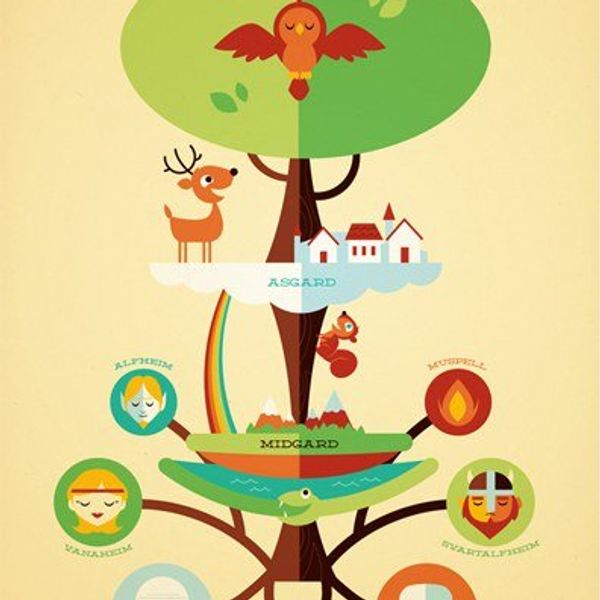Like any nerd worth his or her salt, I grew up reading fantasy books, watching fantasy movies and TV shows, and imagining fantasy scenarios in my front lawn, armed only with a stout stick and the will to be a hero.
Fantasy, as a genre, has been heavily defined by a few great writers; Tolkien, Pratchett, Lewis, and Le Guin, just to name a few. The influence of their works have created a sort of Fantasy standard, a set of common themes and concepts that are pervasive across the genre. These can range from the lofty plot elements of noble questing and world-saving to the dirty details of world building like orcs and dwarves.
But Fantasy did not begin with Tolkien and C.S. Lewis. They, and their fellows, drew inspiration from real-world mythologies and legends. The most notable example of these, and the one that I will cover in this article, is the Dragon.
Every culture around the world has its own unique legendary beasts. The Thunderbirds of the Great Plains and the Manticore of Hellenistic Greece are as different from each other as night from day, products of different societies and environments.
Dragons are the exception. Legends of flying reptilian creatures are found all around the world, from Japan to Meso-America, which in itself is fascinating. What captivates me, however, is how abundantly reasonable our imaginations find them. The Western European Dragon, the four-legged, two-winged, gold-hoarding fire-breather of medieval fame makes very little actual sense. A flying reptile, let alone a fire-breathing one, is unheard of on modern-day Earth
And yet there it appears in our collective imaginations, a creature of impossibility that nevertheless seems inherently possible. When presented with flying reptiles in fantasy we often take it at face value that these immense, impossible beasts can simply breathe fire.
What intrigues me is that this combination of traits have (most likely) never occurred in nature, and yet they seem as logical together within our minds as peanut butter and jelly. The same goes for other fantastical creatures like Mer-people, Griffins, and unicorns. These creatures almost certainly originated in mythology thanks to misidentification of common species. Either that, or they never existed at all.
So what is it that makes flying flamethrowers, fish-people, bird-lions, and horned horses so innately familiar and understandable to our imaginations?
The answer, I think, can be found by following the very fantasy and mythology that perpetuate these creatures. For hundreds of years, the myth of the dragon has been refined and standardized across the globe, evolving with each retelling of their story to better fit the ideas of audience and storyteller. Sort of like a massive, centuries-long game of telephone, but with the result being more understandable and acceptable than the original story.
If you’re as massive a nerd as I am, you can name at least a few different variations on the standard dragon. There’s the Lindworm, a two-legged, salamander-like beastie that inhabits wells in England. The Wyvern of North Africa, with its two wings and poisonous barbed tail. The Amphipteres of Meso-America and their feathered wings and plumes. But of all the hundreds of different variations on the same concept – big angry lizard – the Western European Dragon is the most common portrayal.
Even this global standard is subject to variations of its own, of course, but the modern Western concept of a dragon is surprisingly universal. Dragons like Tolkien’s Smaug, the three hatchlings of George R.R. Martin’s Game of Thrones, the Dragons from Reign of Fire, and numerous others all share the same features of flight, fire-breathing, and general orneriness. As a result of their prevalence in media, these Dragons have taken root in our minds as the standard form.
Ultimately, the familiarity of Dragons in our imaginations seems to stem from their familiarity in our myths, which draw inspiration from imagination. Dragons are a self-perpetuating myth, one that is constantly evolving to fit our dreams. They will always be a part of the human psyche.
All we have to do is imagine them.




















